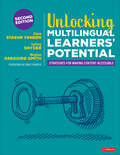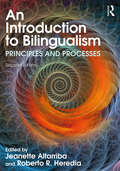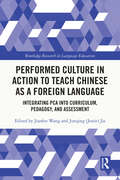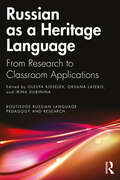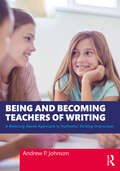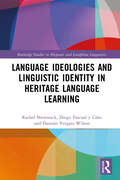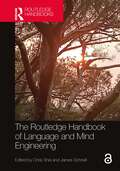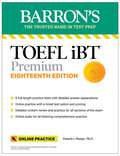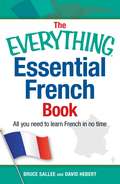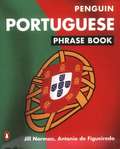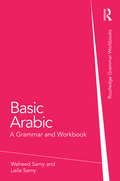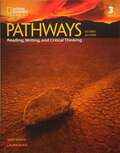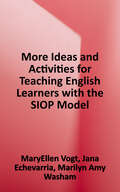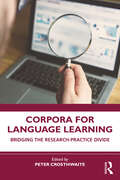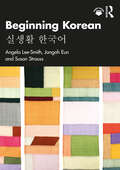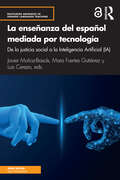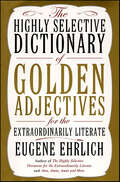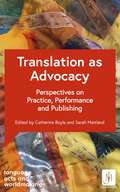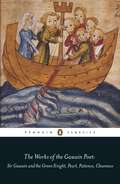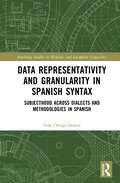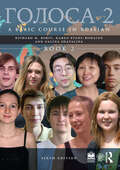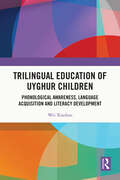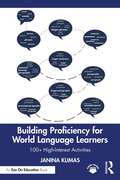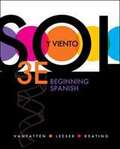- Table View
- List View
Unlocking Multilingual Learners’ Potential: Strategies for Making Content Accessible
by Diane Staehr Fenner Sydney Cail Snyder Meghan Gregoire-SmithBring classroom content to life for multilingual learners In this eagerly anticipated revision of their bestselling book, authors Diane Staehr Fenner, Sydney Snyder, and Meghan Gregoire-Smith share dynamic, research-backed strategies that every educator of multilingual learners (MLs) can add to their repertoire. Including more of what educators loved from the first edition—authentic classroom examples, a wide variety of research-based instructional strategies, and practical tools to implement across grade levels and content areas—this is the ultimate practical guide to unlocking the potential of MLs in K-12 classrooms. With fresh graphics and eye-catching colors, this thoroughly revised edition also includes: Considerations for newcomers and students with interrupted or no formal education (SLIFE) An added chapter on building scaffolded instruction and peer learning opportunities into MLs’ academic reading and writing activities Additional opportunities for reflection and application A new unit planning template aligned with research-based instructional practices, including a completed example unit Situated within five core beliefs that frame the must-haves for MLs’ equitable and excellent education, Unlocking Multilingual Learners′ Potential is a guide to research-based practices and a toolbox of strategies every educator can implement to make content accessible and increase language proficiency among MLs.
An Introduction to Bilingualism: Principles and Processes
by Jeanette Altarriba and Roberto R. HerediaThe study of bilingualism and all of its aspects – from theory and models to social approaches and their practical applications – forms the cornerstone of the 2nd edition of this work. The chapters cover the latest advancements in the domains of psycholinguistics, neuroscience, creativity, and executive functioning. Contributions, new to this edition, offer the reader the most up-to-date research on lifespan and developmental issues. The work also provides insight into how human language is processed by all, not just by bilingual and multilingual speakers.This text is ideal for senior undergraduate and graduate courses in psycholinguistics and the psychology of language, especially those with an emphasis on bilingualism or second language learning.
Performed Culture in Action to Teach Chinese as a Foreign Language: Integrating PCA into Curriculum, Pedagogy, and Assessment (Routledge Research in Language Education)
by Jianfen Wang Junqing Jessie JiaThis volume explores best practices in implementing the Performed Culture Approach (PCA) in teaching Chinese as a foreign language (CFL).Offering a range of chapters that demonstrate how PCA has been successfully applied to curriculum, instructional design, and assessment in CFL programs and classrooms at various levels, this text shows how PCA’s culture-focused paradigm differs fundamentally from the general communicative language teaching (CLT) framework and highlights how it can inspire innovative methods to better support learners’ ability to navigate target culture and overcome communication barriers. Additional applications of PCA in the development of learner identity, intercultural competence, autonomy, and motivation are also considered.Bridging theoretical innovations and the practice of curriculum design and implementation, this work will be of value to researchers, teacher trainers, and graduate students interested in Chinese teaching and learning, especially those with an interest in incorporating performance into foreign language curriculums with the goal of integrating language and culture.
Russian as a Heritage Language: From Research to Classroom Applications (Routledge Russian Language Pedagogy and Research)
by Olesya Kisselev Oksana Laleko Irina Dubinina Svetlana V. NussRussian as a Heritage Language: From Research to Classroom Applications brings together linguistically and pedagogically oriented research traditions in a comprehensive review of current Russian heritage language (HL) studies.Divided into three parts, the collection offers a variety of frameworks and approaches spanning research on HL speakers’ linguistic and pragmatic competence, literacy development, and sociocultural characteristics of Russian in diaspora. Presenting a wide range of new empirical findings, the volume explores topics at the forefront of HL studies, from assessment of HL learners’ linguistic competence and language attitudes to research on communities and institutional affordances impacting HL acquisition and maintenance. Each chapter connects current research with specific classroom applications, presenting Russian as a global language in various sociopolitical and majority-language contexts.Combining methodological rigor with theoretical insights across diverse areas of language study, Russian as a Heritage Language advances the field of HL pedagogy and serves as essential reading for HL educators and researchers as well as for linguists studying bilingualism.
Being and Becoming Teachers of Writing: A Meaning-Based Approach to Authentic Writing Instruction
by Andrew P. JohnsonThis engaging, inviting textbook from a renowned expert in writing education provides all the knowledge, pedagogical strategies, and tools needed to enable any teacher to be an effective teacher of writing.Using the five-step writing process as a foundation, the text describes how to teach the necessary skills related to grammar, spelling, punctuation, and other writing mechanics, and addresses all major genres and stages of writing. Written in an authentic voice that exemplifies good writing, Johnson presents a variety of pragmatic, research-based strategies that support students’ writing development and encourage teachers to apply their own creativity and intelligence in the classroom.This is an essential text for courses in writing instruction, literacy methods, and teaching English Language Arts (ELA).
Language Ideologies and Linguistic Identity in Heritage Language Learning (Routledge Studies in Hispanic and Lusophone Linguistics)
by Rachel Showstack Diego Pascual y Cabo Damián Vergara WilsonLanguage Ideologies and Linguistic Identity in Heritage Language Learning addresses the ways in which discourses about language value and identities of linguistic expertise are constructed and negotiated in the Spanish heritage language (HL) classroom, and how the classroom discourse shapes, and is shaped by, the world outside of the classroom.The volume examines the sociopolitical contexts, personal histories, and communicative practices of Spanish teachers and students in two diverse geographic regions: the US states of Texas and Kansas. Adopting an integrated sociocultural approach, it considers the ways in which individuals draw from multiple linguistic resources and social practices in daily interaction and how they articulate their beliefs about language through storytelling. Rich interactional data, examples from social media, and stories of community engagement are utilized to demonstrate how Spanish heritage speakers use language creatively and proactively to legitimize and claim power in their home and community linguistic practices.This is an invaluable resource for applied linguists who seek to better understand the relationship between language, ideology, and identity and for graduate students and researchers in the fields of linguistics, Spanish, and HL education.
The Routledge Handbook of Language and Mind Engineering
by Chris Shei James SchnellThe Routledge Handbook of Language and Mind Engineering is a comprehensive work that delves into the complex interplay between language, culture, politics, and media in shaping the human mind.The book is divided into five main sections, each exploring different aspects of mind engineering: I. Political Mind Engineering; II. Commercial Mind Engineering; III. Media, Culture, and Mind Engineering; IV. Linguistic and Semiotic Analysis of Mind Engineering; V. Mind Engineering in Educational Settings.The book provides a multi-dimensional perspective on how language, media, culture, and politics intersect to shape individuals' thoughts and beliefs. It highlights the diverse methods and contexts in which mind engineering occurs, making it a valuable resource for scholars, researchers, and policymakers interested in understanding the complexities of contemporary discourse and manipulation of human thought.The contents of this cutting-edge handbook will engage all undergraduate, postgraduate, PhD students and scholars, and researchers at all levels, in fields such as languages, linguistics, politics, communication studies, media studies, and psychology.Chapter 15 of this book is freely available as a downloadable Open Access PDF at http://www.taylorfrancis.com under a Creative Commons Attribution (CC-BY) International license.Chapter 17 of this book is freely available as a downloadable Open Access PDF at http://www.taylorfrancis.com under a Creative Commons Attribution‑Non Commercial‑No Derivatives (CC‑BY‑NC‑ND) 4.0 license.Chapter 18 of this book is freely available as a downloadable Open Access PDF at http://www.taylorfrancis.com under a Creative Commons Attribution-Non Commercial-No Derivatives (CC-BY-NC-ND) 4.0 license.
TOEFL iBT Premium with 8 Online Practice Tests + Online Audio, Eighteenth Edition (Barron's Test Prep)
by Pamela J. Sharpe Ph.D.Barron&’s newest edition of TOEFL iBT has been fully updated to reflect the new TOEFL format and provides flexible study options and key skills review to help you study what you need to know for the test. This edition includes: 8 full-length TOEFL iBT practice tests that reflect the most recent test format with answer explanations Comprehensive review of required academic and language skills Four video lessons on the key skills needed to succeed on the TOEFL: Note Taking, Paraphrasing, Summarizing, and Synthesis Grammar review that supports the Speaking and Writing Sections Online audio for all listening prompts
The Everything Essential French Book: All You Need to Learn French in No Time (The Everything Books)
by Bruce Sallee David HebertAll the basics of French--fast and easy!Whether you are planning a vacation, adding a valuable second language to your resume, or simply brushing up on your skills, The Everything Essential French Book is your perfect introduction to the French language. With easy-to-follow instructions and simple explanations, this portable guide covers the most important basics, including:The French alphabet, accents, and translation.Common French phrases and greetings.Everyday questions and answers.Verb tenses and sentence structure.How to place an order and give commands.The Everything Essential French Book has all you need to get from bonjour to au revoir in no time!
Portuguese Phrase Book
by Antonio de Figueiredo Jill NormanThis Portuguese phrase book contains useful phrases for both business and pleasure. The book includes basic grammar, a pronunciation guide and additional vocabulary.
Basic Arabic: A Grammar and Workbook (Routledge Grammar Workbooks)
by Waheed Samy Leila SamyBasic Arabic: A Grammar and Workbook comprises an accessible reference grammar with related exercises in a single volume.This book presents 51 units, covering the key grammar points which students would expect to encounter in their first year of learning Arabic. Examples and exercises are provided throughout, allowing students to reinforce and consolidate their learning.Key features include: Clear, accessible format Many useful language examples Jargon-free explanations of grammar Abundant exercises with full answer key Subject index Clearly presented and user-friendly, Basic Arabic is an ideal grammar reference and practice resource for both beginners and students with some knowledge of the language. It is suitable for both class use and independent study.
Pathways: Reading, Writing, And Critical Thinking 3
by Laurie Blass Mari VargoPathways, Second Edition, is a global, five-level academic English program. Carefully-guided lessons develop the language skills, critical thinking, and learning strategies required for academic success. Using authentic and relevant content from National Geographic, including video, charts, and other infographics, Pathways prepares students to work effectively and confidently in an academic environment.
99 More Ideas and Activities for Teaching English Learners with the SIOP Model (Siop Ser.)
by Maryellen Vogt Jana Echevarria Marilyn WashamThe SIOP ® model is proven to be one of the most effective methods of teaching our English learners. Now teaching with SIOP is even easier with the second volume of Vogt, Echevarria, and Washam's 99 MORE Ideas and Activities for Teaching English Learners with the SIOP ® Model. Offering brand new, classroom-ready activities, this indispensable resource revisits SIOP ® and shows how to use it each day in the classroom. Whether searching for activities that build vocabulary, keep students highly engaged, or make content concepts clear, these teacher-tested strategies adhere to SIOP ® principles and reinforce best practices. Chapters are organized around SIOP ®'s eight components and thirty features, so teachers learn not only what activities to try, but also why they work. With its dual focus on implementation and understanding, this must-have resource helps you create a classroom where students progress both academically and in their English language proficiency.
Corpora for Language Learning: Bridging the Research-Practice Divide
by Peter CrosthwaiteThis volume presents a diverse range of expertise and practical advice on corpus-assisted language learning, bridging the gap between corpus research and actual classroom practice.Grounded in expert discussions and interviews, the book offers an extensive exploration into the intricacies of corpus-based language pedagogy, addressing its challenges, benefits, and potential drawbacks while demonstrating the power of data-driven learning (DDL) tools, including AntConc, WordSmith Tools, and CorpusMate. The book navigates the complexities of integrating DDL into mainstream educational systems, showcasing real-world applications for teaching. The authors bring together cutting-edge, international perspectives on this topic in dialogue with those using such techniques in their classroom practice.Both a rigorous academic resource and a hands-on guide for practitioners, this book is recommended reading for educators, researchers, or anyone wanting to upskill themselves in learning to harness the power of data in language pedagogy in primary, secondary, tertiary, or other professional contexts.
Beginning Korean: 실생활 한국어
by Angela Lee-Smith Jongoh Eun Susan StraussBeginning Korean is a Korean language textbook for use at the high school and college levels, involving characters who speak and interact in Korean using beginner-to-intermediate-level expressions, vocabulary, and grammar.The book contains a rich variety of natural-sounding dialogues involving characters from a diverse range of backgrounds as they exchange ideas, make plans, and socialize in a variety of natural contexts in Korea. The book provides a wide variety of conversational expressions, grammar notes, and vocabulary items, in addition to ‘Cultural Insights’ to expand users’ understandings of and familiarity with Korean culture from more insider perspectives.Further supporting material, including audio, can be found at www.routledge.com/9781032687032. The book is designed around ACTFL’s 5 Cs (Communication, Cultures, Connections, Comparisons, and Communities) and includes specific proficiency-based Can-Do learning goals for each unit. As such, the content, topics, and areas of focus in this book can be useful for a wide range of programs, educators, and learners of Korean.
La enseñanza del español mediada por tecnología: de la justicia social a la Inteligencia Artificial (IA) (Routledge Advances in Spanish Language Teaching)
by Javier Muñoz-Basols Mara Fuertes Gutiérrez Luis CerezoLa enseñanza del español mediada por tecnología ofrece una nutrida panorámica de la investigación actual y de las estrategias didácticas sobre la integración de la tecnología en la enseñanza y el aprendizaje del español. Estructurado en trece capítulos esenciales, el libro constituye una hoja de ruta diseñada para que los profesionales de la lengua incorporen de manera eficaz la tecnología en cualquier entorno de aprendizaje: presencial, híbrido o en línea.Características principales: marco metodológico Planificar, Personalizar e Implementar (PPI) con elementos teóricos y prácticos sobre tecnología y enseñanza de lenguas selección de temas: accesibilidad, diseño curricular, actitudes de los docentes y diversidad; estrategias para gestionar la motivación, ansiedad, interacción y feedback; pautas para gestionar la enseñanza híbrida y en línea, inmersión lingüística digital, podcasts y narraciones digitales; gamificación e Inteligencia Artificial (IA) estructura consistente: conceptos clave, directrices metodológicas, consideraciones prácticas y referencias adicionales estrategias pedagógicas para apoyar la enseñanza de lenguas mediada por tecnología Escrito por un elenco internacional de investigadores, el libro es un recurso único para incorporar prácticas eficientes en la enseñanza de idiomas mediada por tecnología.La enseñanza del español mediada por tecnología offers a thorough exploration of current research and instructional strategies related to the integration of technology into the teaching and learning of Spanish. It consists of thirteen chapters that serve as a roadmap designed for language professionals to effectively incorporate technology into their learning environments: face-to-face, hybrid, or fully online.Key features: Three major sections presented as a framework, Planning, Personalizing and Implementing (PPI), that blend both theoretical and practical elements of technology; A unique range of topics, such as accessibility, curriculum development, teachers' beliefs and diversity; strategies for managing motivation, anxiety, interaction, and feedback; tips for effective hybrid and online teaching, digital language immersion, use of podcasts and digital storytelling, gamification, and Artificial Intelligence (AI); A consistent format for all chapters, with key concepts, methodological guidelines, practical considerations, and references for further exploration of each topic covered; Clear explanations and numerous scenarios that help readers comprehend the various factors that influence technology-assisted language learning; Support for educators in navigating the challenges that arise in technology-enhanced learning and teaching, with a focus on pedagogical best practices; Tips for educators to transition from a conventional curriculum approach to a more creative and engaging one that maximizes learning opportunities mediated by technology. Written by an international team of scholars, La enseñanza del español mediada por tecnología is a unique resource for Spanish language professionals at any context who wish to improve and enhance their teaching techniques. The book will be equally valuable to teachers of other languages as it contains relevant material on best practices and classroom management in technology-mediated education.
The Highly Selective Dictionary of Golden Adjectives: For the Extraordinarily Literate (Highly Selective Reference)
by Eugene EhrlichAdjectives have long suffered from bad press. For many years, English teachers have been fond of telling students that "adjectives are the enemy of nouns, and adverbs are the enemy of everything else."While it's still advisable to heed your English teacher's advice on most other matters, The Highly Selective Dictionary of Golden Adjectives for the Extraordinarily Literate proves that breaking certain rules can make written and spoken language that much livelier, adding much-needed color, style, and adornment. With this addition to the popular Highly Selective series, the "golden" adjective, at last, gets the star treatment it deserves. From adventitious to zaftig, renowned lexicographer Eugene Ehrlich has collected more than 850 of the most interesting and engaging adjectives in the English language and has provided concise definitions and instructive usage examples. Whether you're a writer, a speaker, or a word buff, this compendious, trenchant, laudable, and all-around fantabulous volume will help you put panache back into your prose.
Translation as Advocacy: Perspectives on Practice, Performance and Publishing (Language Acts and Worldmaking)
by VariousWhat does it mean to advocate - in translation, for translation, through translation? What does advocacy look like, for those who do the translating or for those whose work is translated? To what extent is translation itself a form of advocacy? These 'what' questions are the driving force behind this collection.Translation as Advocacy highlights the innovative ways in which translator-academics in seven different fields discuss their practice in relation to their understanding of advocacy. The book aims to encourage people to think about translators as active agents bringing new work into the receiving culture, advocating for the writers they translate, for ideas, for practices. As such, the book asserts that the act of translation is a mode of cultural production and a political intervention through which the translator, as advocate, claims a significant position in intercultural dialogue.Featuring seven interrelated chapters, the book covers themes of judgement, spaces for translation, classroom practice, collaboration, intercultural position, textuality, and voice. Each chapter explores the specific demands of different types of translation work, the specific role of each stage of the process and what advocacy means at each of these stages, for example: choosing what is translated; mediating between author and receiving culture; pitching to publishers; social interactions; framing the translation for different audiences; teaching; creating new canons; gatekeepers and prizes; dissemination; marketing and reception. This book repositions the role of the translator-academic as an activist who uses their knowledge and understanding to bring agency to the complex processes of understanding across time and space. Moving critically through the different stages that the translator-academic occupies, using the spaces for research, performance and classroom teaching as springboards for active engagement with the key preoccupations of our times, this book will highlight translation as advocacy for students, educators, audiences for translation and the translation industry.Like all the volumes in the Language Acts and Worldmaking series, the overall aim is two-fold: to challenge widely-held views about language learning as a neutral instrument of globalisation and to innovate and transform language research, teaching and learning, together with Modern Languages as an academic discipline, by foregrounding its unique form of cognition and critical engagement.Specific aims are to:· propose new ways of bridging the gaps between those who teach and research languages and those who learn and use them in everyday contexts from the professional to the personal· put research into the hands of wider audiences· share a philosophy, policy and practice of language teaching and learning which turns research into action· provide the research, experience and data to enable informed debates on current issues and attitudes in language learning, teaching and research· share knowledge across and within all levels and experiences of language learning and teaching· showcase exciting new work that derives from different types of community activity and is of practical relevance to its audiences· disseminate new research in languages that engages with diverse communities of language practitioners.
Translation as Advocacy: Perspectives on Practice, Performance and Publishing (Language Acts and Worldmaking)
by VariousWhat does it mean to advocate - in translation, for translation, through translation? What does advocacy look like, for those who do the translating or for those whose work is translated? To what extent is translation itself a form of advocacy? These 'what' questions are the driving force behind this collection.Translation as Advocacy highlights the innovative ways in which translator-academics in seven different fields discuss their practice in relation to their understanding of advocacy. The book aims to encourage people to think about translators as active agents bringing new work into the receiving culture, advocating for the writers they translate, for ideas, for practices. As such, the book asserts that the act of translation is a mode of cultural production and a political intervention through which the translator, as advocate, claims a significant position in intercultural dialogue.Featuring seven interrelated chapters, the book covers themes of judgement, spaces for translation, classroom practice, collaboration, intercultural position, textuality, and voice. Each chapter explores the specific demands of different types of translation work, the specific role of each stage of the process and what advocacy means at each of these stages, for example: choosing what is translated; mediating between author and receiving culture; pitching to publishers; social interactions; framing the translation for different audiences; teaching; creating new canons; gatekeepers and prizes; dissemination; marketing and reception. This book repositions the role of the translator-academic as an activist who uses their knowledge and understanding to bring agency to the complex processes of understanding across time and space. Moving critically through the different stages that the translator-academic occupies, using the spaces for research, performance and classroom teaching as springboards for active engagement with the key preoccupations of our times, this book will highlight translation as advocacy for students, educators, audiences for translation and the translation industry.Like all the volumes in the Language Acts and Worldmaking series, the overall aim is two-fold: to challenge widely-held views about language learning as a neutral instrument of globalisation and to innovate and transform language research, teaching and learning, together with Modern Languages as an academic discipline, by foregrounding its unique form of cognition and critical engagement.Specific aims are to:· propose new ways of bridging the gaps between those who teach and research languages and those who learn and use them in everyday contexts from the professional to the personal· put research into the hands of wider audiences· share a philosophy, policy and practice of language teaching and learning which turns research into action· provide the research, experience and data to enable informed debates on current issues and attitudes in language learning, teaching and research· share knowledge across and within all levels and experiences of language learning and teaching· showcase exciting new work that derives from different types of community activity and is of practical relevance to its audiences· disseminate new research in languages that engages with diverse communities of language practitioners.
The Works of the Gawain Poet: Sir Gawain and the Green Knight, Pearl, Cleanness, Patience
by Ad Putter Myra StokesA new volume of the works of the Gawain poet, destined to become the definitive edition for students and scholars.This volume brings together four works of the unknown fourteenth-century poet famous for the Arthurian romance Sir Gawain and the Green Knight, in their original Middle English. In one of the great tales of medieval literature, Gawain, the noblest knight of King Arthur's court, must keep a deadly bargain with a monstrous knight and resist the advances of his host's beautiful wife. The dream vision of Pearl depicts a bereaved father whose lost child leads him to glimpse heaven. And in moral poems based on stories from the Bible, Cleanness warns against sins of the flesh and of desecration, while Patience encourages readers to endure suffering as God's will.Little is known about the so-called 'Gawain poet', who wrote during the late fourteenth century. It is believed that he came from south-east Cheshire, an important cultural and economic centre at the time, and he was clearly well-read in Latin, French and English. Although he is not named as the author of Sir Gawain and the Green Knight, Pearl, Patience, Cleanness, the four works have been attributed to him based on a careful comparison of their language, date and themes.Myra Stokes was formerly Senior Lecturer in the Department of English at Bristol University. Her books include Justice and Mercy in Piers Plowman and The Language of Jane Austen.Ad Putter teaches at the English Department and the Centre for Medieval Studies of the University of Bristol, where is Professor of Medieval English Literature. His monographs include Sir Gawain and the Green Knight and French Arthurian Romance and An Introduction to the Gawain Poet, and he is also co-editor of The Cambridge Companion to the Arthurian Legend.
Data Representativity and Granularity in Spanish Syntax: Subjecthood across Dialects and Methodologies in Spanish (Routledge Studies in Hispanic and Lusophone Linguistics)
by Iván Ortega-SantosData Representativity and Granularity in Spanish Syntax focuses on the dialogue between Generative Grammar, Variationism, and experimental linguistics with a unique emphasis on Spanish linguistics.Combining formal syntax and empirical data collection, this volume analyzes and compares various data collection methods in syntactic theory, and examines a wide variety of approaches to gain novel insight in this emerging area. Through the case study of subject properties in Spanish, with an emphasis on how differences in data collection and data analysis standards may shape our perception of the object of study, this book addresses the following questions: (a) How do the data gathered through the standard methodology in each discipline diverge (if at all) and why? and (b) What kind of research questions can be answered with the standard methodology in each field? The volume argues for methodological crosspollination to avoid forcing data to conform to field-specific expectations and to appreciate language variation for what it has to tell us about linguistic theory, marrying the goals of Generative Grammar with data-driven research.This is an essential resource for researchers in the area of formal and generative syntax, linguists with an interest in data collection standard in syntax, and graduate or advanced undergraduate students in the field of Spanish linguistics.
Golosa: A Basic Course in Russian, Book Two
by Richard M. Robin Karen Evans-Romaine Galina ShatalinaГОЛОСА: A Basic Course in Russian, Book Two (Sixth Edition), takes a contemporary approach to language learning by focusing on the development of functional competence as well as the expansion of cultural knowledge.The sixth edition of this bestselling communicatively based text for Russian has been updated by putting a greater focus on contemporary culture and simplified, visual grammar explanations that will better engage students. The program also covers the basic morphology of Russian (declension, case government, conjugation). The program has been a bestseller as a college Russian textbook through five editions since 1993.Following on from Golosa Book One, Golosa Book Two is divided into ten units. Organised thematically, each unit contains dialogs, texts, exercises, and other material designed to enable students to read, speak, and write about the topic, as well as to understand simple conversations. The systematic grammar explanations and exercises enable students to develop a conceptual understanding and partial control of all basic Russian structures. This strong structural base enables students to accomplish the linguistic tasks and prepares them for further study of the language. Book Two is designed to bring students to the ACTFL Intermediate range in speaking (A2/B1 on the CEFR scale).Print and eTextbooks are accompanied by a Student Workbook and a rich companion website (www.routledge.com/cw/golosa) offering audio and video material, instructor resources and fully integrated exercises to use alongside the text. The companion website, powered by Lingco, is available for separate purchase from Lingco. Teachers can preview the new companion websites and create their courses. Free audio and video resources are also available at www.routledge.com/cw/golosa, including the Instructor Resources. For resources on how to set up and customize your course, please visit the Help Center on the Lingco Language Labs website at www.lingco.io. It includes articles that explain how the platform works and what you can do with it. Students may join their teacher’s course on Lingco and will be able to enter their access code or purchase access at any point in the 14-day grace period that begins on the first date of access. Students receive 12 months of access that begins after a free 14-day grace period.
Trilingual Education of Uyghur Children: Phonological Awareness, Language Acquisition and Literacy Development
by Wei XiaobaoGiven the differences in the orthographic structure of the Uyghur, Chinese and English languages, this study used a mixed-method approach to systematically describe and analyze the phonological awareness of Uyghur bilingual children as English learners and its contributions to their trilingual literacy acquisition and development.Focusing on the development of these learners' phonological awareness in Uyghur, Chinese and English, this study explored the influences of Uyghur and Chinese learning on the formation of their English phonological awareness and the roles of different components of phonological awareness in their trilingual literacy development. Based on the characteristics of the phonetic structure in Uyghur, Chinese and English and the development of Uyghur children's phonological awareness in these languages, a Chinese phonetic identification training and Uyghur–Chinese–English comprehensive phonetic training program (including intensive phoneme category contrast training and phonics training) was designed to explore whether such targeted phonetic identification training can effectively improve these children's phonological awareness in Chinese and English and thus further promote their trilingual literacy development.This book will appeal to researchers and students interested in the fields of psycholinguistics, language acquisition and multilingual education.
Building Proficiency for World Language Learners: 100+ High-Interest Activities
by Janina KlimasThis innovative book offers over 100 engaging and effective activities that busy teachers can use to help students become confident, comfortable, and proficient learners, acquirers, and communicators in new languages. Many activities can be adapted to different languages and levels in secondary-level language courses.Klimas provides readers with ready-to-use templates, editable posters, as well as multimodal communicative activities such as games, storytelling exercises, ideas for centers, and more. There are also pair work and speaking, listening, and reading, as well as drama and video activities to build fluency and encourage risk-taking in the target language.Chock full of low-prep, engaging ideas, Building Proficiency for World Language Learners is an essential tool for world language and ESL teachers.
